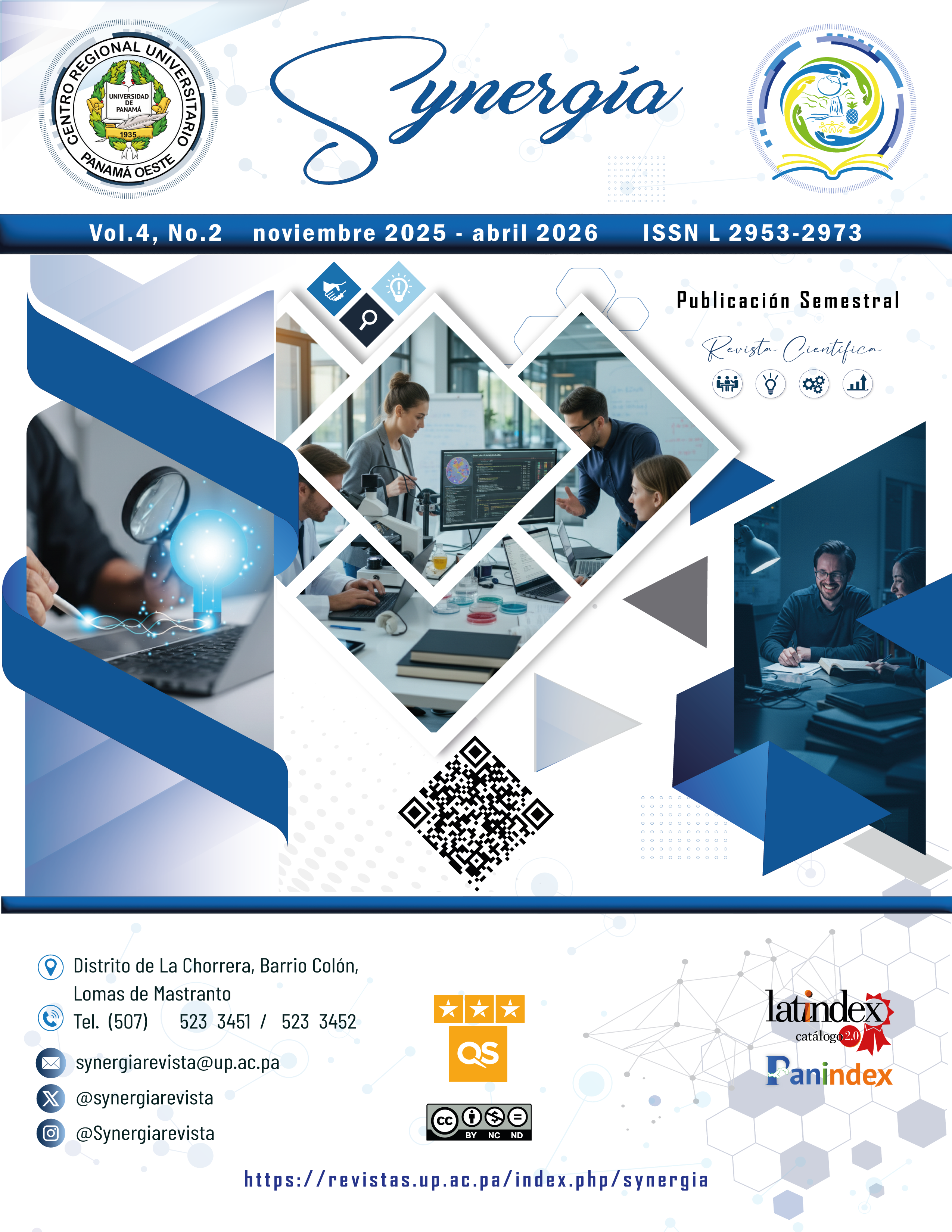

Copyright (c) 2025 Synergía

This work is licensed under a Creative Commons Attribution-NonCommercial-ShareAlike 4.0 International License.
Evidence-Based Nursing (EBN) is an essential approach to ensure safe, efficient, and scientifically grounded health care by integrating the best available evidence, clinical expertise, and patient preferences. In Panama, its implementation has become increasingly relevant due to epidemiological changes, population aging, and the growing burden of chronic diseases, although gaps in both literature and practice still hinder its consolidation. This bibliographic review aimed to identify the main challenges and strategies to strengthen EBN in the country. A systematic search of publications from 2018 to 2023 was conducted in databases such as PubMed, SciELO, Cochrane Library, and Elsevier, using Spanish and English descriptors (“evidence-based nursing,” “implementation,” “Panama”) and applying inclusion criteria related to original studies, clinical guidelines, and technical reports. The selected information was analyzed through narrative synthesis, organizing the findings into thematic categories. The results indicate that the adoption of EBN faces barriers such as limited access to scientific information, a weak research culture, the absence of locally adapted clinical guidelines, and the high workload of nursing staff. However, significant opportunities were identified, including digital access to scientific resources, promotion of applied nursing research, development of context-specific guidelines, continuous training, and the integration of EBN into public health policies. It is concluded that consolidating EBN in Panama requires coordinated efforts among the Ministry of Health, universities, hospitals, and nursing professionals to establish it as a standard of practice, thus enhancing the quality and safety of patient care.